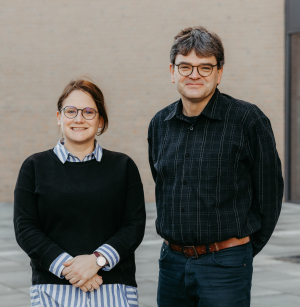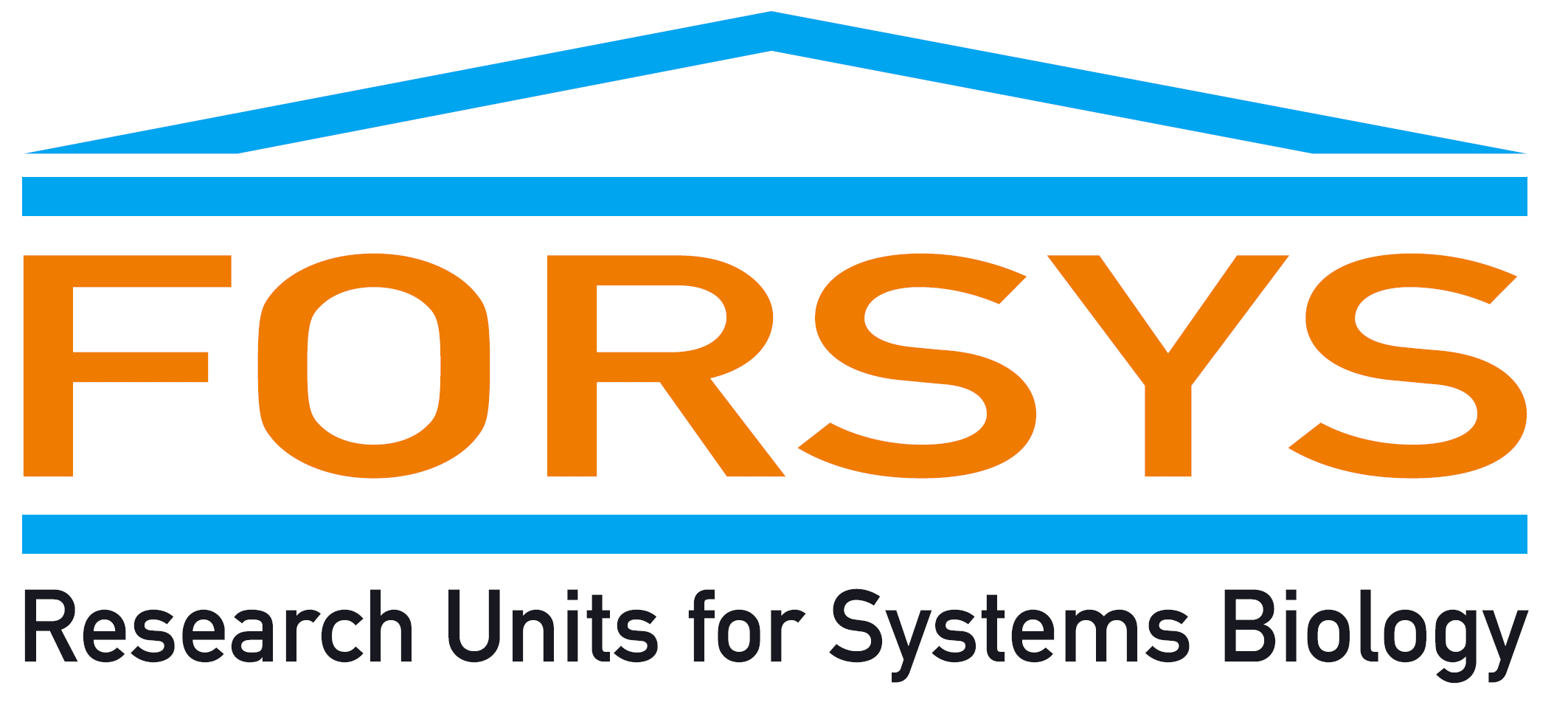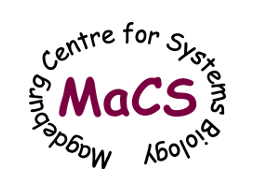News
Talk
| Name: | Dr. George Skouteris |
| NOVASSAY SA Switzerland, UK | |
| Homepage (external Link) | |
| Date/Location: | Monday, February, 24th 2025, 2 pm, Building 28 / Room 27 |
| Title: | Macromolecular complexes between the α2δ-1 auxiliary subunit of the Voltage Gated Calcium Channel (VGCC) and Glutamate receptor (NMDAR) subunits as novel targets in solid malignancies. |
Interested guests are welcome!
Talk
| Name: | Dr. Chrstian Ehlting |
| Department of Gastroenterology, Hepatology, and Infectiology, Hepatoimmunology; University Hospital Heinrich-Heine-University, Düsseldorf | |
| Homepage (external Link) | |
| Date/Location: | Thuesday, January, 21th 2025, 5 pm, Building 28 / Room 27 |
| Title: | Control of intercellular innate immune response by the p38-MK2/3 kinase system in viral infection and LPS-induced inflammation |
| Summary |
Inflammatory cytokines play a central role in intercellular communication between different cells and tissues during the innate immune response to infection or injury. However, complex cytokine responses can have beneficial or detrimental effects. Thus, infections that lead to increased morbidity or mortality are often associated with an exaggerated inflammatory response of the host. It is therefore of great clinical interest to limit harmful inflammatory processes and at the same time ensure the elimination of the pathogen. A potential target in this context is the intracellular p38-MK2/3-mediated signaling pathway, which is involved the initiation as well as the resolution of inflammatory cytokine synthesis in response to bacterial or viral pathogen-associated molecular patterns (PAMPs). The presented study uncovers the role of the p38-MK2/3 kinase system and involved downstream effector molecules in regulating the composition of a broad cytokine profile in two experimental models of inflammation and highlights the consequences for innate immunity. These models include the LPS-induced acute-phase reaction in the liver and an acute infection with the murine cytomegalovirus (MCMV). |
Interested guests are welcome!
Intravascular crosstalk of interleukin-6 and therapeutic glucocorticoids in SARS-CoV2 infection
Scientists from the Institute of Biology at Otto von Guericke University Magdeburg plan to investigate the causes and molecular mechanisms of severe COVID-19 courses over the next three years.
In a research project just approved by the German Research Foundation DFG with 500,000 euros, the scientists from the Chair of Systems Biology at the University of Magdeburg, together with colleagues from the Helmholtz Centre for Infection Research HZI in Braunschweig, will investigate under laboratory conditions what leads to the serious damage to our vascular system associated with a severe COVID-19 course and thus advance new therapeutic approaches.
Photo: Jana Dünnhaupt
Talk
| Name: | Prof. Dr. Iris Behrmann |
| Signal Transduction Laboratory Life Sciences Research Unit University of Luxembourg |
|
| Homepage (external link) | |
| Date/Location: | Thursday, March, 05th 2020, 5:00 pm, Building 28 / Room 27 |
| Title: | Signal transduction of IL-6-type cytokines: involvement of (short and long) non-coding RNAs |
Interested guests are welcome!
Talk
| Name: | PD Dr. Christoph Garbers |
| Institute of Biochemistry, Christan-Albrechts-University Kiel | |
| Homepage (external link) | |
| Date/Location: | Thursday, March, 08th 2018, 5 pm, Building 28 / Room 27 |
| Title: | Control of intracellular signaling pathways by extracellular cytokine receptors |
Abstract:
Intracellular signaling cascades, e.g. the Jak/STAT pathway, have several different functions in health and disease. Their activation and the duration of signaling must be tightly controlled. Dysregulated, overshooting activities of such pathways are often associated with human diseases. The pleiotropic cytokines Interleukin-11 (IL-11) and IL-6 are secreted glycoproteins that activate their target cells via specific membrane-bound IL-6/IL-11 alpha receptors (IL-11R and IL-6R, respectively). Formation of cytokine/cytokine receptor complexes leads to the formation of a homodimer of the ubiquitously expressed signal-transducing beta-receptor gp130 (termed classic signaling), which induces signaling cascades like the Jak/STAT pathway. Thus, the cellular expression pattern of the alpha receptors determines which cells respond to IL-6 and IL-11, respectively, as gp130 is ubiquitously expressed. Importantly, the ectodomains of the IL-11R and IL-6R can be cleaved off the cells by several proteases, albeit with different preferences and specificities. The resulting soluble receptors (sIL-11R and sIL-6R) act as agonists and can activate cells via gp130 (termed trans-signaling), which widens the spectrum of cells that can be activated by IL-11 and IL-6. The presentation will give an overview how signaling on the inside is regulated by cytokine receptors on the outside of the cell, and how knowledge about these processes can be exploited therapeutically.
Interested guests are welcome!
Talk
| Name: | Prof. Dr. Raymond Kaempfer |
| Hebrew University of Jerusalem, School of Medicine, IMRIC Biochemistry and Molecular Biology, Israel | |
| Homepage (externer Link) | |
| Date/Location: | Monday, December 04st 2017 16:00 Uhr in Building 28 / Pfälzer Platz, Room 027 |
| Title: | Conrol of mRNA splicing by noncoding intragenic RNA elements that evoke a cellular stress response |
Abstract:
We define structure and function of novel noncoding RNA elements within the tumor necrosis factor and hemoglobin genes that by activating a cellular stress response hitherto thought only to repress translation, render splicing of their mRNAs highly efficient. These RNA elements activate the RNA-dependent kinase, PKR. PKR-mediated mRNA splicing, we show, depends strictly on phosphorylation of translation initiation factor eIF2α which is both necessary and sufficient to achieve efficient splicing,while leaving translation intact.
References:
Cell Research (http://rdcu.be/qB2k)
Cell Reports (http://dx.doi.org/10.1016/j.celrep.2017.06.035 ).
Interested people are welcome!
Talk
| Name: | Dr. Niamh Connolly |
| Physiology & Medical Physics Department, Royal College of Surgeons in Ireland | |
| Homepage (external Link) | |
| Date/Location: | Thursday, November 09th 2017, 5 pm, Building 28 / Room 27 |
| Title: | Using systems modelling to investigate bioenergetic dysfunction in Alzheimer’s disease |
Abstract:
Mitochondrial bioenergetic dysfunction is implicated in neurodegenerative diseases such as Parkinson’s, Alzheimer’s and Huntington’s Diseases. It is unknown, however, whether mitochondrial dysfunction is sufficient to trigger neurodegeneration, or whether it constitutes an additional risk factor. As part of the interdisciplinary, multi-lab consortium, ‘Cellular Bioenergetics in Neurodegenerative Diseases’ (CeBioND; cebiond.org), we are combining systems modelling with in vitro experiments in a cellular model of Alzheimer’s Disease, to holistically investigate the impact of neurodegenerative defects on mitochondrial bioenergetic output.
Interested guests are welcome!
Talk
| Name: | Dr. Manuela Benary |
| Institute for Theoretical Biology, Humboldt University Berlin | |
| Homepage (external Link) | |
| Date/Location: | Thursday, March 09th 2017, 5 pm, Building 28 / Room 27 |
| Title: | Information theory reveals the contribution of MAPK signaling to cell cycle |
Interested guests are welcome!







